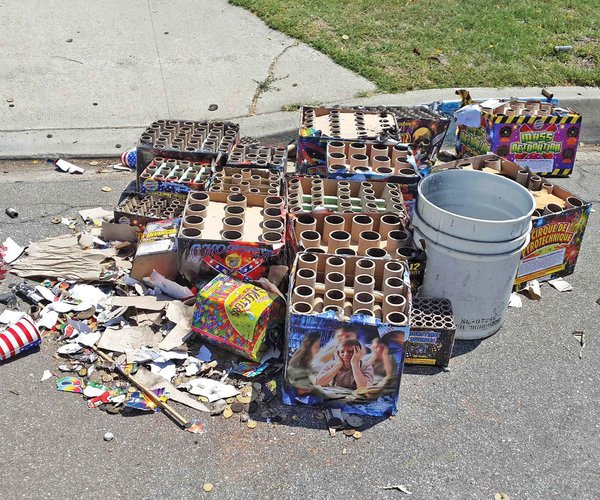On a summer night family barbeque in Ceres, Randy Sullivan, a fire engineer With Ceres Fire Department came across a predicament many other firemen come across. "Oh you're a fireman huh?" someone said to him. "So you sit around and do nothing all day? Pretty sweet gig."
In shock, Randy felt insulted and defended his career.
This comment is not unusual. Ceres firefighters David Steenburgh and Jason Cripe have come across similar situations like Randy's from people who assume they have very little responsibilities at the station.
Firefighters work 48 hour shifts at a time including holidays, according to Sullivan.
"Our station is like a second home because every second, minute, or hour of our day the publics needs is our number one priority," he said.
Ceres Fire Department has four stations. Station 1 is centrally located in Ceres on Third Street. Station 2 is on Pecos Avenue north of Ceres. Station 3 is on Service Road and covers the southwest part of Ceres, and Station 4 is on Fowler Road covering the east side of Ceres.
At each station there is a Captain, Engineer, and Firefighter except for station 3 which is staffed with a Captain and Engineer.
• Their shift begins at 7 a.m.
• Physical fitness training and breakfast is between 7 a.m. and 9 a.m.
• Department wide morning briefing is at 9 a.m.
• Equipment and engine checks are then completed. From noon to evening time they have training, business inspections, hydrant maintenance, public education, and any station chores.
Firefighter Zach Fowler reflected on the busyness of the crews.
"Well yesterday, for example, we ran 10 to 12 calls in 15 hours," he said. "And if you do the math that's a little less than one call per hour in a 15-hour period."
Clearly, breaks, meals, or personal time may or may not occur depending upon the calls received.
Battalion Chief Mike Lillie provided the annual summary for call volume in 2014. A total of 69.6 percent of total Ceres calls were for EMS, rescue, or public assist while 8.3 percent were for fires. An EMS call can range anywhere between a heart attack to a drug overdose or sudden death in the home. Regardless of the severity in the situation firefighters are one of the first responders.
Aside from the more typical calls, like to fight fires or assist in medical emergencies, firefighters can also expect out of the ordinary calls during a 48-hour shift.
"One time we got a call at three in the morning for a 90-year-old lady who needed help with her broken water heater that flooded three feet of her basement," said Sullivan. "Sleepless nights are typical around here, which is totally fine because we know that's what we signed up for when we took the job."
Firefighters are also very involved in the community including:
• Ceres Fire barbeques for Concerts in the Park, hosting a food booth in the Ceres Street Faire, Pink October, Fill the Boot, Sober Grad Night, and the Every 15 Minutes program alternating between the two high schools.
• During these events firefighters are not on shift, meaning they are not being paid while giving back to the community.
"The events that take place must be when we are off-duty," noted Ceres Fire engineer Jason Cripe. "Off-duty firefighters are always volunteering their time to the community because we love giving back."
Whether it's the misconception of firefighters lounging around, or having a "sweet gig" kind of career, firefighters are always there day and night rain or shine. Regardless of these misconceptions, it is important for any firefighter to keep a positive perspective on the topic.
"When someone says something negative, we should always respond back in a positive light," said Cripe. "We should inform the person of what we actually do in our career, why we support the certain organizations that we do, and give examples of why we enjoy giving back to the community."





